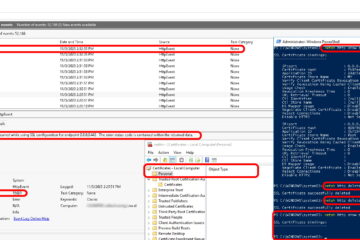It doesn’t matter how you are paid; staff, contractor, agency… you customer will look to you for reliability and that means you need to be more than good, you need to be great.
These are the rules I live by and judge others by. It you want to be a quality IT IS ICT Computer contractor / staffer, you need to do these (in no particular order):
- Be BUSY: When you are working for your client, it might appear that they want you to hang out and make jokes but I assure you the person responsible for your contract wants you to keep moving. Be busy or be gone!
. - NEVER Screw Your Client: Remember those lies you told your parents when you were a kid… ya, they found out what you did/said and so will your customer. NEVER inflate a bill because you think they won’t find out. NEVER take anything from the client site that the client doesn’t know about (unless you are doing an equal swap that will keep everyone happy). If you finish a job early and go home when you think no-one is around, make certain you log in from home and finish your shift, or make up the time on some other shift. (Remember there are alot of security camera’s, security system door lock/access logs… that you may not know about.)
. - Set LONG Expectations: If you think something is going to take 10 minutes, tell the client to expect half an hour. If you think something is going to take two hours, tell them it is going to take all afternoon. Don’t lie and stretch it to ridiculous times, but if you have any experience at all you know that things in IT go wrong and you need more time to re-configure and retest so make sure your customer has planned for that time. You will seldom be in trouble for telling the client about a scheduled outage but you will ALWAYS be in trouble if you don’t complete the work in the allotted time. Also, if you finish early, you look like a hero and everyone will love you.
. - Dress BETTER Than Your Client: If they wear blue jeans and t-shirts, wear black jeans and golf shirts. If they wear slacks and dress shirts, you wear the same, but with a tie. I know it is out of fashion these days, but I assure you that psychology research is on my side on this. If you dress better, people think you are better. Keep in mind that there are limits. If you client is “business casual”, showing up in a tuxedo, will just make you look like a arrogant knob.
. - KNOW Your Stuff: Your client is not paying you to learn. Even if you are working with brand new technology, your client is expecting you to take your experience in other area’s and quickly apply it to the new environment… faster than they can. If you don’t know something you should… fake it and then go home and learn it fast! Call you IT friends, collegues, partners suppliers… whoever and ask what they know about it. Go to TrainSignal and get some fast (as in you can start your training within 2 minutes of placing your order), quality training.
. - Do MORE Than You Are Asked To Do: When you have decided to roll out Office 2013, start using it in beta 6 months before hand, develop 45 minute lunch and learn and provide that course to the staff. When you are deploying new hardware, clean up the empty boxes quickly and explain to the recipient of the hardware what has improved (beyond the obvious it is faster; perhaps it is cooler so it uses less electricity or it is smaller so it takes space and is quieter…).
. - Be a LEADER (not a follower) and Make DECISIONS/POLICIES/RULES: Volunteer your expert opinion on topics you know. It is your job to keep their environment and staff moving efficiently towards their corporate goals. Don’t wait for the client to ask you about a problem you should have already solved / avoided through good policies. TELL the customer and staff what good IT policies are and then explain why those rules are good. They don’t know or they would already have those policies in place. Locking down machines through Group Policy keeps the system clean and safe and most importantly stops staff from frittering away their day finding and learning products that don’t improve their work, more than they cost their employer in lost time. If you know staff are installing software they shouldn’t, block them and remove the offending software. You are not paid to agree with your client; you are paid to be able to explain to your client why your ideas will advance their business.
. - COMMUNICATE When There are Notable Problems: When something goes wrong, let the managers/owners/leaders know IMMEDIATELY. Tell them the basics, that the problem has your full attention and that you will get back to them with more information within an hour or so, when you have determined more about the issue and possible solutions. Be careful when notifying everyone, sometimes it is better to let the management team know. For example, in the case of a security breach you may make thing much worse by letting everyone know there is a hole; in small business, perceived security (as it pertains to staff) is as good as actual security. There also may be legal implications you are not aware of.
. - If It Doesn’t MAKE MONEY, Its Not Worth Doing: If you want to do something because it is cool, don’t. If what you are doing does not make or save your client more money than it costs, you are waiting your time and risking your job. That doesn’t mean that cool IT projects which don’t have an immediate pay off are not worth your efforts. Installing 70″ touch screens to control maps might just be the thing to give you client that “wow” factor with their clients, which is good for sales and employee retention. You need to be saving your client much more than you are costing them or eventually you will be replaced.
. - Keep Confidential Things, CONFIDENTIAL: If you shouldn’t be looking at something, don’t. If you see something that is not important for you to get your job done avoid that information. When. helping accounting staff work on a payroll spreadsheet, don’t pay attention to the numbers, or at least don’t put names together with the numbers. Knowing what someone is paid will only make you cranky. If they are paid to much, you will think less of them; if they are paid too little you will want to tell them go ask for a raise. Both of these scenarios, will get you in trouble. Also, confidential things are cool… you know a secret… and they have a way of leaking out in conversations, often by accident. This will get you fired or pushed down the “advancement list”.



0 Comments